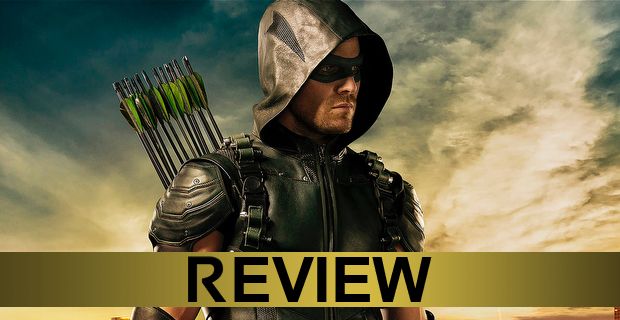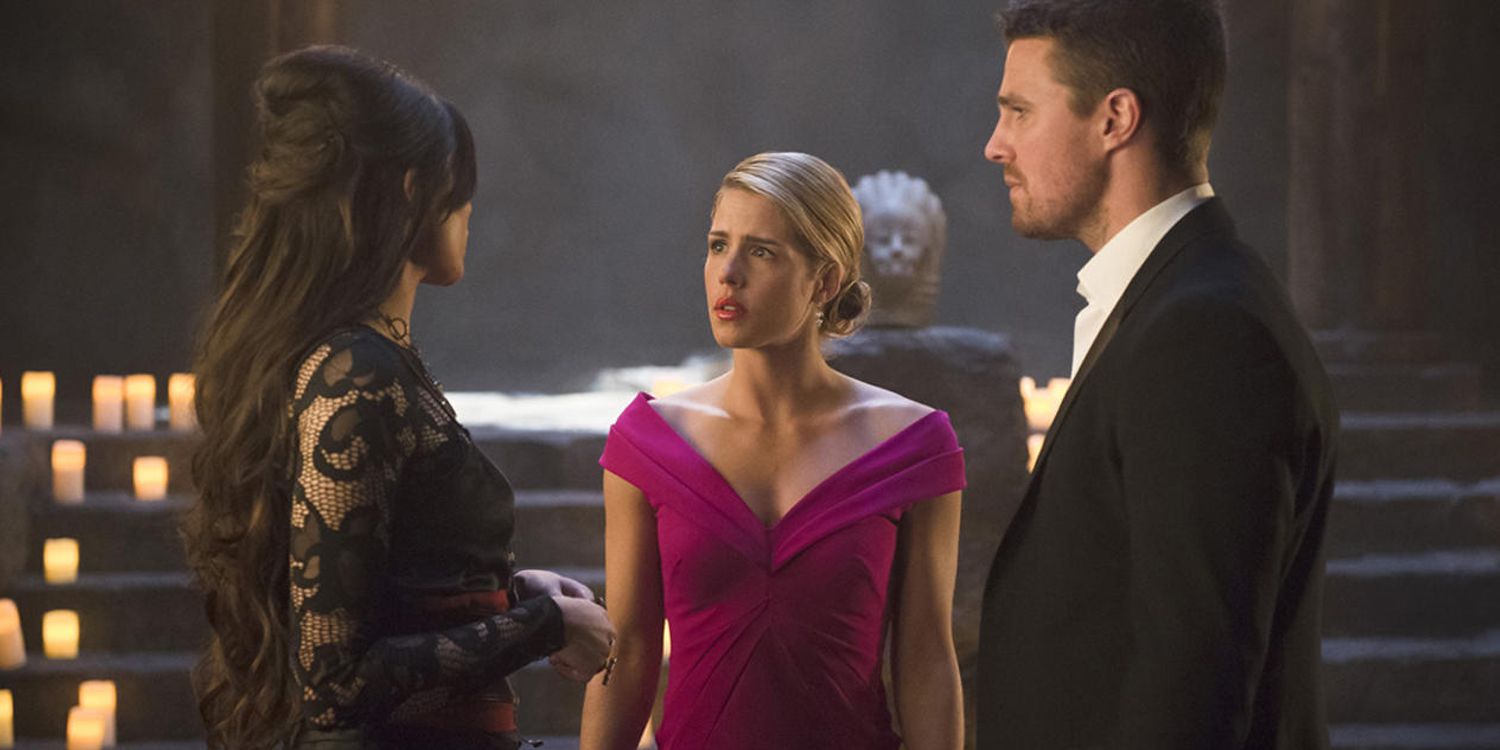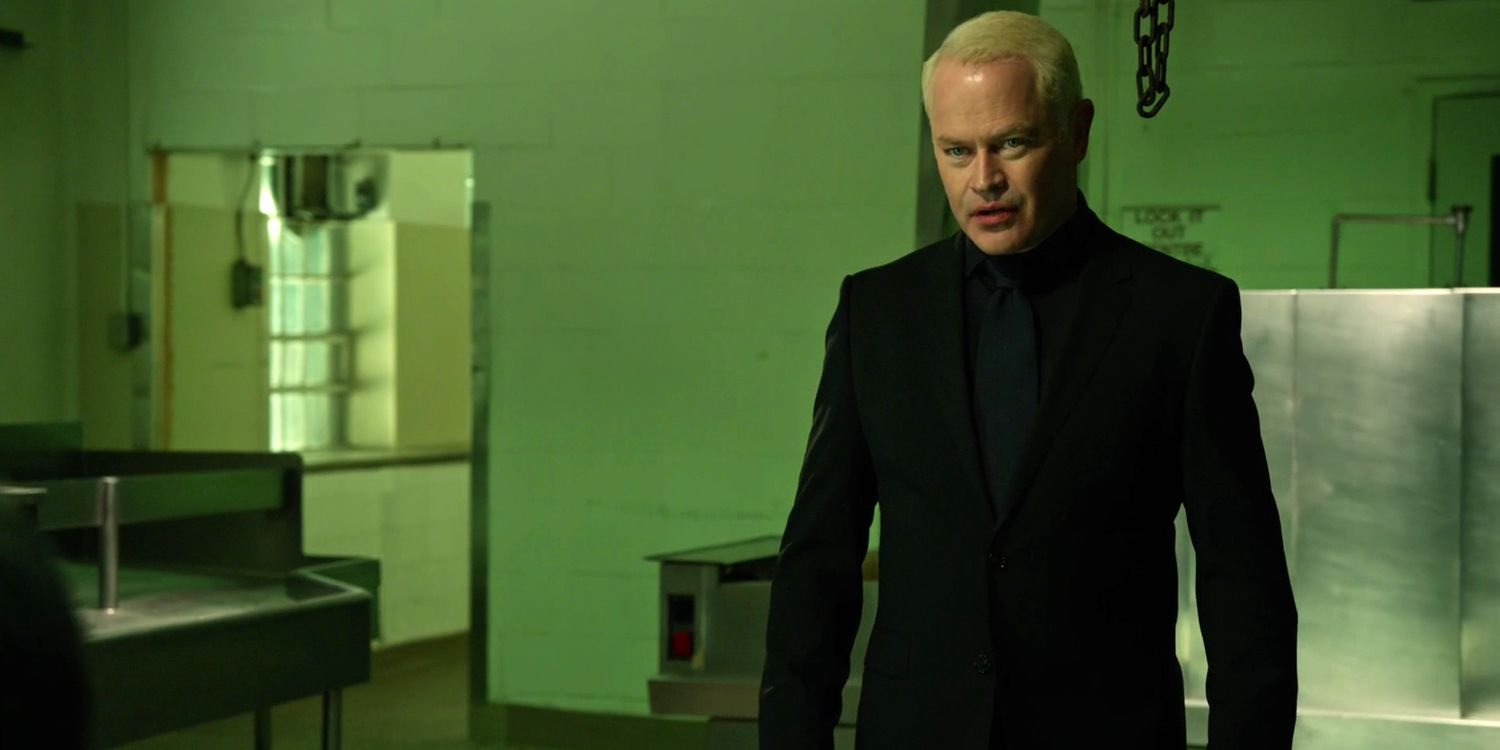[This is a review of Arrow season 4, episode 20. There will be SPOILERS.]
-
When Felicity broke up with Oliver it was made clear her decision wasn't based on the fact that her fiancé had an illegitimate child with a woman he dated a decade ago; it was because Oliver had once again fallen into the same boring routine of hiding information from people close to him. In this case, he neglected to tell something very important to the woman with whom he was supposed to share everything. It was a major bonehead move on Oliver's part, one that demonstrated to Felicity he was incapable of change. No matter how hard he tried, or how close he became to those around him, Oliver would always fall back on some old habits.
Arrow has worked hard this season and in seasons past to suggest it was his time on Lian Yu and the adversity he faced there that turned Oliver into a secretive, emotionally isolated person. And while the show has had some success in proposing he'd changed or was capable of change – especially with the first few episodes of season 4 – Oliver's old ways have proven to be too good at creating melodrama for the writers to let him off the hook that easy. And yet, as the season pushes its way closer to the endgame that Damien Darhk and H.I.V.E. have in mind for Star City (and the entire world, apparently), the implication of Oliver being able to learn from his mistakes and change into a more open person who is capable of letting light into his otherwise dark existence has once again been raised.
What makes 'Genesis' more than another U-turn on the emotional highway that is the life of Oliver Queen, is how the hour measures Ollie's capacity to change for the better with another character's incredibly serious decision that may have him (and others) questioning his morality and whether or not he made a change for the worse.
Like most television shows with a large cast, Arrow works best when it finds a way for all the characters to convene and interact in and around the same setting and within the same plot. Sometimes the show finds success when it breaks the core cast apart, allowing characters to chase individual plot threads or to develop their own arcs. These moments are, admittedly, few and far between because they require a larger time commitment and tend to only pay off after several episodes have passed, if then. This appeared to be the case for 'Genesis,' which split Team Arrow up early on, after Oliver had an off screen chat with John Constantine who told him where he could find a supernatural tutor who could teach him some rudimentary skills to battle Darhk's seemingly unstoppable magic.
With Oliver headed to Hub City with Felicity and Thea chasing a short vacation in the suburbs with Alex "I contain multitudes" Davis, Diggle finds himself chasing down some diapers when he runs into his duplicitous younger brother and a shootout ensues. The encounter is meant to elicit recent memories of Laurel's death and the role Andy played in it, and to the episode's credit, it doesn't push too hard to remind viewers of that fact. Instead, the encounter works to put the weight of a terrible decision on Diggle's shoulders, as it increasingly becomes clear that whatever bond he and Andy shared as brothers is now gone. Diggle can continue to fight with Andy and hope no one else is killed in the process, or he can make the seemingly impossible choice of putting an end to it once and for all. This may be one of the better examples of Arrow demonstrating how Laurel's death has affected those around her. And in a somewhat surprising turn, the show has decided that, in Diggle's view, the death of his colleague doesn't put him in a position where he views all life as precious. Instead, it seems to suggest that, in order to protect those closest to him, Diggle has to do the unthinkable.
While the rest of the hour is spent doing some necessary table setting for the season finale, primarily by giving Oliver a desultory interaction with the immortal Esrin Fortuna (Gabriella Wright), setting up Thea inside one of H.I.V.E.'s underground bio domes (with a regrettable dearth of Pauly Shore), and allowing Darhk to steal the launch codes of several nuclear missiles, the episode's power is ultimately derived from the emotional weight of Diggle's (almost reflexive) decision to kill his brother. The implication of Diggle's action is that he has crossed some sort of line – fitting, given that the A.R.G.U.S. implant Darhk stole from Lyla was called the Rubicon. And while it's true that what Diggle has done cannot be undone, the importance of his actions are evaluated by his response to them and how they are remarkably different from, say, what Oliver's response would be.
Rather than internalize the trauma of having to kill his own brother, Diggle turns to Lyla for council and some sense of emotional grounding. Arrow isn't always the best when it comes to handling the grey areas of a character's decisions, preferring instead to deal mostly in shades of black and white, but 'Genesis' does an admirable job of trying to understand the horrific decision John was forced to make and why, as awful as it is and as much as it may haunt him moving forward, he may be able to find justification in his action. And by making Lyla the person John turns to in his time of emotional need, Arrow manages an unstated but still significant comparison between him and Oliver.
The completion of the story arc concerning the brothers Diggle winds up being a fulfilling late-game episode for the season. The weight of John's plot throughout the hour balanced out some of the less substantial moments, like Oliver's interactions with Fortuna and Thea's borderline surreal suburban getaway. John's thread did more to underline the complaints leveled against Oliver by Felicity than any interaction between the two as of late. Although it looked as though John might be moving into a darker place, his openness with Lyla and his emotional vulnerability proved otherwise. The hour not only sets up what is likely to be a huge climax to the season, but it also suggests that if Oliver is going to move away from the darkness within him, he can start by following Diggle's lead.
-
Arrow continues next Wednesday with 'Monument Point' @8pm on The CW. Check out a preview below:



